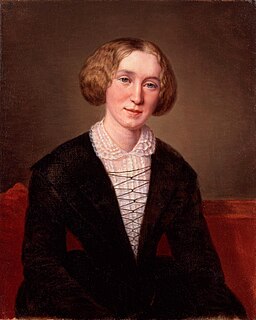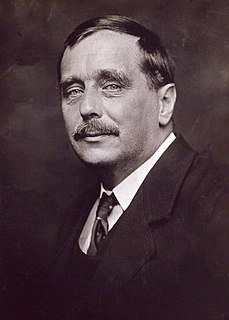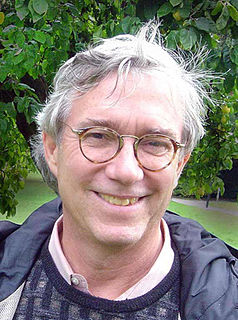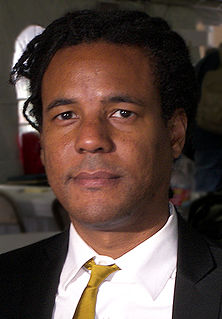William Mode Spackman (May 20, 1905 – August 3, 1990) was an American writer. He was born in Coatesville, Pennsylvania, the son of George Harvey Spackman and Alice Pennock Mode. [1] A graduate of the Friends School of Wilmington, Delaware and in 1927 Princeton University (B.A.; later also an M.A.), he was also a Rhodes Scholar at Balliol College, Oxford. In 1929, he married Mary Ann Matthews (1902–1978); they had three children: Peter (1930–1995), Ann (1932–1961), and Harriet (born 1934). Spackman was awarded a Rockefeller Fellowship to study public opinion at Columbia University. Spackman also taught classics briefly at New York University and worked in radio. [2]

Coatesville is a city in Chester County, Pennsylvania, United States. The population was 13,100 at the 2010 census. Coatesville is approximately 39 miles west of Philadelphia. It developed along Lancaster Turnpike, beginning in the late 18th century. It spans U.S. Route 30, the "Main Line" highway that runs west of Philadelphia.
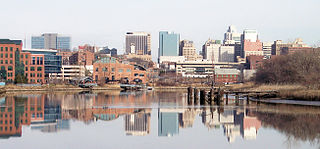
Wilmington is the largest and most populous city in the U.S. state of Delaware. The city was built on the site of Fort Christina, the first Swedish settlement in North America. It is at the confluence of the Christina River and Brandywine River, near where the Christina flows into the Delaware River. It is the county seat of New Castle County and one of the major cities in the Delaware Valley metropolitan area. Wilmington was named by Proprietor Thomas Penn after his friend Spencer Compton, Earl of Wilmington, who was prime minister in the reign of George II of Great Britain.

Princeton University is a private Ivy League research university in Princeton, New Jersey. Founded in 1746 in Elizabeth as the College of New Jersey, Princeton is the fourth-oldest institution of higher education in the United States and one of the nine colonial colleges chartered before the American Revolution. The institution moved to Newark in 1747, then to the current site nine years later, and renamed itself Princeton University in 1896.
Spackman's literary success came relatively late in life. He wrote about romance from a realistic rather than a romantic perspective. Highly praised by critics like John Leonard, John Updike, and Stanley Elkin, he has been called a "Fabergé of novelists" [3] and his works have been called "delicate comedies." [4] The characters in his novels are school friends, their associations, often in New York City, and the women with whom they spent time.

John Leonard was an American literary, television, film, and cultural critic.
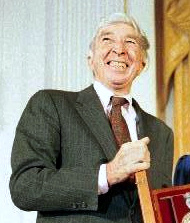
John Hoyer Updike was an American novelist, poet, short-story writer, art critic, and literary critic. One of only three writers to win the Pulitzer Prize for Fiction more than once, Updike published more than twenty novels, more than a dozen short-story collections, as well as poetry, art and literary criticism and children's books during his career.
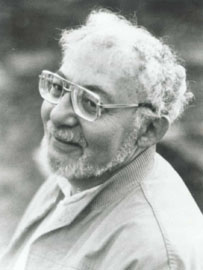
Stanley Lawrence Elkin was an American novelist, short story writer, and essayist. His extravagant, satirical fiction revolves around American consumerism, popular culture, and male–female relationships.
He was the author of:
- An Armful of Warm Girl (1978)
- A Difference in Design (1983)
- A Little Decorum, for Once (1985)
- Heyday (1953)
- A Presence with Secrets (1980)
- As I Sauntered Out, One Mid-Century Morning (published posthumously in the following:)
- The Complete Fiction of W.M. Spackman (Dalkey Archive Press, 1997)
He was also the author of a collection of essays entitled On the Decay of Humanism (Rutgers University Press, 1967). Its contents, along with his other essays and reviews, were reprinted in On the Decay of Criticism: The Complete Essays of W. M. Spackman (Fantagraphics Books, 2017).
Typescript drafts, revisions, and galley proofs of three of his novels have been deposited in the archives of the Princeton University Library. [5]


